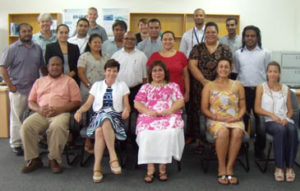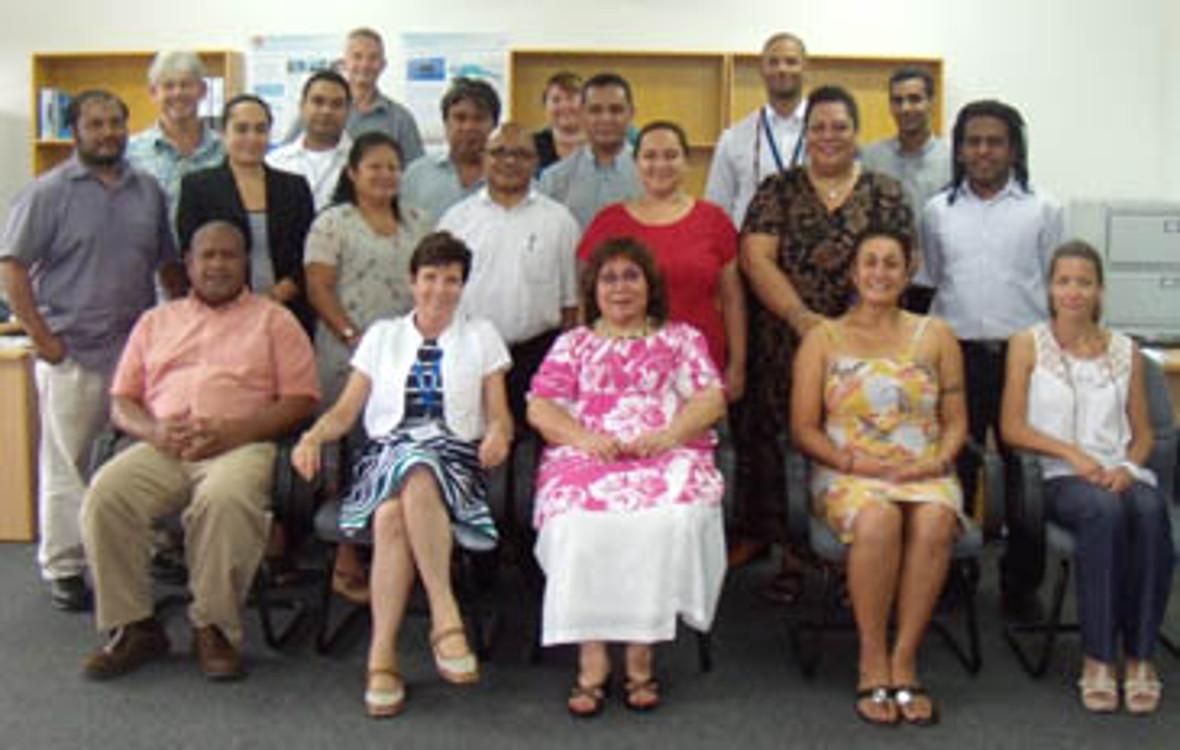 The Global Climate Change Alliance: Pacific Small Island States project held its first regional steering committee meeting in Suva on 28–29 May 2012. Participants from Cook Islands, Federated States of Micronesia, Kiribati, Marshall Islands, Nauru, Niue, Palau, Tonga and Tuvalu joined the project’s secretariat and representatives from regional organisations and the European Union to learn about the project’s regional and international scope and to plan project activities.
The Global Climate Change Alliance: Pacific Small Island States project held its first regional steering committee meeting in Suva on 28–29 May 2012. Participants from Cook Islands, Federated States of Micronesia, Kiribati, Marshall Islands, Nauru, Niue, Palau, Tonga and Tuvalu joined the project’s secretariat and representatives from regional organisations and the European Union to learn about the project’s regional and international scope and to plan project activities.
The Global Climate Change Alliance (GCCA), an initiative supported by the European Union, seeks to strengthen dialogue and cooperation on climate change in developing countries most vulnerable to climate change. The GCCA emphasises innovative and effective approaches to delivering climate change support and addressing the capacity needs of developing countries. There are 40 GCCA programmes that are ongoing or under preparation in over 35 countries across four regions, with an envelope of €300 million. The GCCA: Pacific Small Island States project is part of this global initiative.
The nine small island states supported by the project exhibit significant diversity, ranging from high islands to low atolls, some with very sparse populations and some with high population densities. SPC is working with these nine countries, and with other Pacific Island countries and territories to address the risks posed by climate variability and climate change.
Implementing on-the-ground climate change adaptation projects is an important aspect of the project. It will be supported by mainstreaming climate change into key sectors, policies and plans within national governments. Advancing new opportunities for countries to access and manage climate change funding resources is another exciting aspect of the project.
Most countries had conducted consultations prior to the meeting, so representatives came prepared to outline specific areas of focus for their countries. Preliminary areas of focus cover coastal protection, water and health sectors. One participant noted, ‘The project’s approach is very refreshing, flexible and yet still organised.’
For more information:
Contact Gillian Cambers (Tel.: 679 337 9450; email: [email protected])
